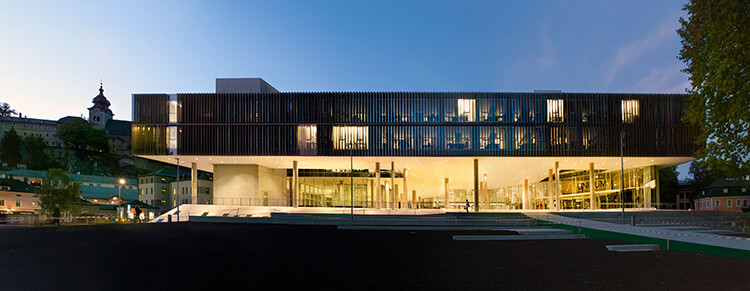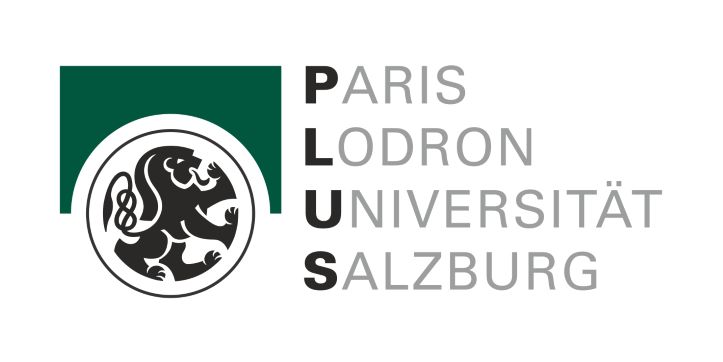|
Inscription et dîner de gala FRAIS D’INSCRIPTION : Il n’y a pas de frais d’inscription pour les conférenciers ni pour les auditeurs, que ce soit en mode présentiel ou en ligne. Les étudiants et les enseignants en sciences du langage désireux de suivre la conférence en ligne sont priés d’envoyer un email à gerosla@sciencesconf.org L’équipe organisatrice vous enverra un lien Webex la veille du colloque ! DINER DE GALA SUR PLACE : Un paiement de 35 euros sera nécessaire pour les conférenciers et les auditeurs souhaitant participer au dîner de gala qui se tiendra en ville le jeudi 29 septembre. Le règlement se fera en espèces directement dans l’accueil. Vous pourrez vous adresser au comité organisateur, présent sur place. Programme Téléchargez le programme de la conférence ICI Bienvenue Le département de Langues Romanes (Paris-Lodron-Universität Salzburg, Autriche) a le plaisir d’accueillir la 1ère édition de la conférence GeRoSLA. Le sujet de la conférence est l’acquisition L2 de catégories linguistiques et cognitives non-équivalentes en langues romanes et germaniques : le transfert revisité. Vous êtes cordialement invité.e à soumettre votre proposition en français, toute autre langue romane (ou en anglais). La conférence se tiendra à Salzbourg les 29 et 30 septembre 2022. La participation en mode hybride est envisageable.
Conférenciers pléniers Session 1: Temps et aspect
Session 2: Espace et déplacement
Dates importantes 30 May 2022: 15 Juillet 2022: Date butoir des soumissions 30 Juin 2022: 31 Juillet 2022: Notification d'acceptation 1 Juillet 2022: 1 Août 2022: Ouverture du délai d'inscriptions 31 Août 2022: Clôture des inscriptions au colloque
Appel à contributions Les langues romanes et germaniques diffèrent dans la conceptualisation et la verbalisation de diverses catégories cognitives (par exemple, le temps, la perspective, l'espace, le mouvement). Ces différences typologiques ont été signalées comme un facteur explicatif du transfert conceptuel L2 (Jarvis & Pavlenko 2010, Jarvis 2015). En ce qui concerne les conceptualisations spatiales, l’influence des spécificités des langues à cadrage verbal a été attestée en allemand L2 puisqu’orientées vers les figures plutôt que sur la manière du déplacement (Flecken et al. 2015c). À l'inverse, les apprenants de langues permettant l'expression du mouvement par des éléments satellitaires (comme l'italien) montrent une utilisation plus précoce des particules satellitaires en anglais L2 par rapport aux apprenants dont leur L1 manque de satellites (Anastasio 2019). Concernant les conceptualisations aspectuelles, il a été montré que l'absence de moyens grammaticaux encodant l'aspect progressif en allemand et l'existence du V-ing en anglais entraînent des différences significatives dans l’allocation des ressources attentionnelles : les locuteurs natifs de l’allemand se focalisant sur l’agent de l'action, tandis que les locuteurs natifs de l'anglais se concentrent sur l’action elle-même (Flecken et al. 2015b). Outre les différences conceptuelles, les dissemblances entre la L1 et la L2 quant aux moyens linguistiques utilisés pour exprimer des catégories susmentionnées posent souvent un défi aux apprenants de la L2. Dans le domaine des études temps-aspect, par exemple, il a été montré que la L1 exerce une influence importante sur l’acquisition du temps et de l’aspect dans une L2 (cf. Salaberry 2008, Bardovi-Harlig & Comajoan-Colomé 2020). Dans ce contexte, plusieurs études illustrent que les apprenants dont la L1 manque d’aspect grammatical (par exemple, l'allemand) ou dont la L1 exprime des notions aspectuelles différemment de la langue cible (c'est-à-dire des correspondances forme-sens non équivalentes), ont des difficultés à acquérir une L2 romane (cf. par exemple McManus 2015, Diaubalick & Guijarro-Fuentes 2019, González & Quintana Hernández 2018, Salaberry 2011). Afin d’approfondir la compréhension des multiples facteurs ayant un impact sur l’acquisition de catégories linguistiques et cognitives non équivalentes dans une L2, nous souhaitons discuter des résultats des différents cadres théoriques évoqués ci-dessus (relativité linguistique, transfert conceptuel et transfert linguistique). Dans ce cadre, l’utilisation de méthodes psycholinguistiques et neurolinguistiques (telles que le suivi oculaire, self-paced reading, les potentiels évoqués, etc.) s’est avérée particulièrement précieuse (cf. par exemple Flecken et al. 2015a, Flecken et al. 2015b, Roberts/Liszka 2021, Papafragou et al. 2008), offrant des informations sur les processus de réception et de production en ligne qui ne sont souvent pas accessibles par de simples méthodologies hors ligne. Alors que de telles méthodes ont déjà été appliquées aux études sur l’espace et le déplacement, elles n’ont guère été utilisées dans le domaine du temps et de l’aspect. Cependant, l’application de ces méthodes à d’autres cadres ainsi que la triangulation des perspectives et des données extraites de diverses approches théoriques et méthodologiques semblent offrir une voie prometteuse vers une image plus complète des processus sous-jacents à la conceptualisation et à la verbalisation de catégories cognitives non équivalentes et leurs représentations linguistiques. La conférence GeRoSLA vise à aborder les sujets suivants (liste non exhaustive) :
IMPORTANT : Même si l'appel à propositions mentionne de manière explicite les catégories de l'aspect et de l'espace, toute proposition présentant des résultats originaux sur une autre catégorie est également bienvenue.
Références bibliographiques Anastasio, Simona (2019): “L’expression du déplacement en italien L2: Perspectives typologiques et psycholinguistiques”, in: Language, Interaction and Acquisition 10 (2), 204-228. Bardovi-Harlig, Kathleen / Comajoan-Colomé, Llorenç (2020): “The aspect hypothesis and the acquisition of L2 past morphology in the last 20 years”, in: Studies in Second Language Acquisition 42, 1137-1167. Diaubalick, Tim / Guijarro-Fuentes, Pedro (2019): “The strength of L1 effects on tense and aspect: How German learners of L2 Spanish deal with acquisitional problems”, in: Language Acquisition 26 (3), 282-301. Flecken, Monique / Athanasopoulos, Panos / Kuipers, Jan / Thierry, Guillaume (2015a): “On the road to somewhere: Brain potentials reflect language effects on motion event perception”, in: Cognition 141, 41-51. Flecken, Monique / Gerwien, Johannes / Carroll, Mary / von Stutterheim, Christiane (2015b): “Analyzing gaze allocation during language planning: A cross-linguistic study on dynamic events”, in: Language and Cognition 7, 138-166. Flecken, Monique / Weimar, Katja / Carroll, Mary / von Stutterheim, Christiane (2015c): “Driving along the road or heading for the village? Conceptual differences underlying motion event encoding in French, German, and French-German L2 users”, in: The Modern Language Journal 99, 100-122. González, Paz / Quintana Hernández, Lucía (2018): “Inherent aspect and L1 transfer in the L2 acquisition of Spanish grammatical aspect”, in: The Modern Language Journal 102 (3), 611-625. Jarvis, Scott (2015): “Conceptual review article: Clarifying the scope of conceptual transfer“, in: Language Learning 66 (3), 608-635. Jarvis, Scott / Pavlenko, Aneta (2010): Crosslinguistic Influence in Language and Cognition. New York: Routledge. McManus, Kevin (2015): “L1-L2 differences in the acquisition of form-meaning pairings: A comparison of English and German learners of French”, in: Canadian Modern Language Review 71 (2), 51-77. Papafragou, Anna / Hulbert, Justin / Trueswell, John (2008): “Does language guide event perception? Evidence from eye movements”, in: Cognition 108, 155-184. Roberts, Leah / Liszka, Sarah (2021): “Grammatical aspect and L2 learners’ online processing of temporarily ambiguous sentences in English: A self-paced reading study with German, Dutch and French L2 learners”, in: Second Language Research 37 (4), 619-647. Salaberry, Rafael (2008): Marking Past Tense in Second Language Acquisition. A Theoretical Model. London: Continuum. Salaberry, Rafael (2011): “Assessing the effect of lexical aspect and grounding on the acquisition of L2 Spanish past tense morphology among L1 English speaker“, in: Bilingualism: Language and Cognition 14 (2), 184-202.
|



